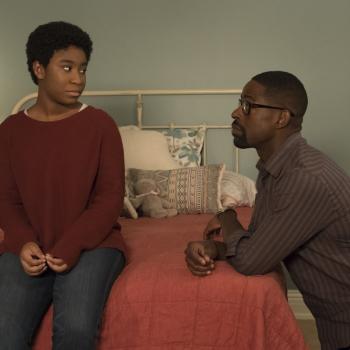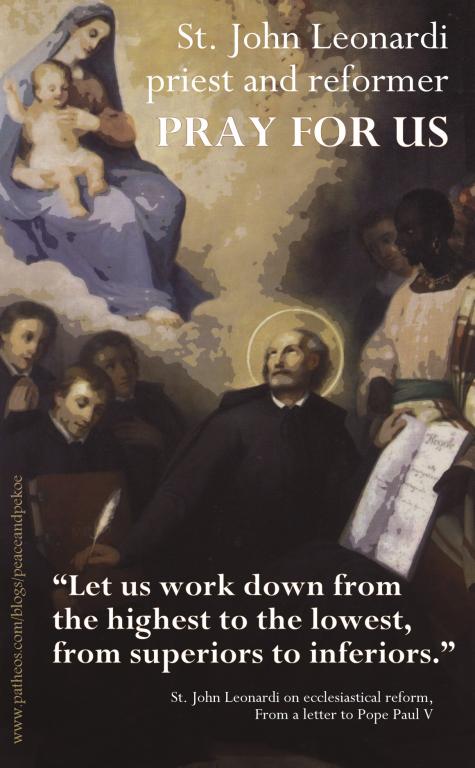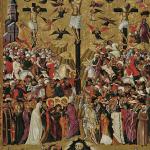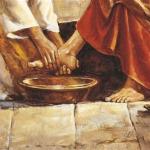A friend of mine posted a link to this post, which is a couple years old. In it, a library blogger who lives in New Orleans writes about the television show Treme and cultural appropriation in the wake of Katrina. A couple of things struck a chord for me, and I wanted to write about it, to figure out my thoughts a little.
Here’s a quote from the post:
“Some people just want to see themselves on TV” she said. I guess. Sort of. But I didn’t see myself on TV. I didn’t see any of the people I grew up with. I didn’t see any of the people I work and play with either. I saw a parade of hipster psuedo-New Orleans douchenozzling. And I think that’s what the crappy people in the bar wanted to see on TV. Not themselves so much as a validation of the pose they’ve assumed.
I talk with people around me a lot about our friends and neighbors who moved away after Katrina and the contrast between them and the people we deal with who have moved in since. In our experience, the newcomers have a knack for rather boldly instructing us in the art of how to be ourselves. As if being a New Orleanian means constantly talking about when Mardi Gras is coming or how much you like jazz music or whatever.
 |
| Quintessential New Orleans for sale! |
I lived in New Orleans for five years. I have fairly mixed feelings about my time there, but for the most part I really enjoyed the city, and am grateful to have had first-hand experience of New Orleans during a pivotal period in the city’s recovery from Katrina.
The home that my husband found for us was in a fairly sheltered part of the city, in Uptown New Orleans, which had gentrified pretty completely before Katrina and was then populated pretty heavily by upper-middle class professionals, college students, and young newcomers from other parts of the country, a certain number of whom were so apparently directionless and underemployed that I admit I (somewhat unflatteringly) found myself thinking of them as “human driftwood.” They would show up, acclimate, and within weeks talk about the city as though they had lived there for years.
I was never able to decide whether it was charmingly sweet to see these kids (twenty-somethings) go so gung-ho NOLA chauvinistic (because I really do love enthusiasm, of whatever kind) or whether it was arrogantly presumptuous to co-opt an identity so quickly (and naively small-minded to correspondingly devalue the virtues of the towns, states, and communities where they’d variously originated). They threw themselves into everything distinctly New Orleanian. I think they drove the demand for fleur-de-lis everything—from t-shirts to tattoos—that seems to have become a major part of the local economy. They sought out every “authentically New Orleanian” experience they could think of.
And the odd thing was that I didn’t really have most of those experiences. I didn’t go to a single bar that had live jazz playing, I didn’t spend much time in the Quarter, I didn’t see any Mardi Gras Indians, and I never rode (or walked) in a parade.
But you know something? Neither did the nanny I used to hang out with in the park while we watched my son play with her employer’s daughter. (As a SAHM in a very white area of uptown, I met a lot more nannies than I did other parents.) She grumbled about Mardi Gras because she had to take a bus across town to work—she wasn’t going to parades; the standardization of the routes uptown meant that they weren’t really for her anyhow. These things were distinct to the city, but (as this blogger observes) the city (like any city) is more than that small subset of experiences that fall outside the overlapping portion of a Venn diagram of “life in Great American Cities.”
So, this is where the blogger took this reaction to a TV version of New Orleans that trades on a kind of secular iconography of the city more than it reflects the experiences of everyday, ordinary people who happen to live in New Orleans. I’ll avoid the irony of preaching about “the real New Orleans” after complaining about cultural and identity appropriation, and leave that to the original poster and my native New Orleanian friends. But there’s something important, and universal, touched on in this particular passage:
“The case they’re making isn’t save New Orleans because people lived there and were fucked by the crappy flood protection system. It’s save New Orleans because look at these cool things that we’re interested in about it. I think that’s a significantly weaker argument to make on our behalf. But, as I think I’ve made clear, these people really aren’t speaking on behalf of us as much as they are their fantasies.”
Think about that.
And the problem with all of that is that, in the end, it is not terribly different from “Save New Orleans because look at these cool things that we’re interested in about it.”
| Blues, jazz, Bourbon Street: what else is there? |
A week ago, I posted about a family, the Denaults, who were asking for three thousand dollars to buy a car, to try to recover from a run of bad luck (and, probably, poor decisions) and improve their lives. My plea on their behalf was very similar to my plea on my college friend’s behalf. I could have used all the same arguments as others did in my post asking for support for Thom, but instead I wrote about compassion and mercy:
Thom (and his lovely wife Natalie) deserve a hand up in this trying ordeal for the same reason any suffering person does—not because of who he is, or what we expect he will do for the world, but because he IS.
Suffering is universal…we suffer in different ways, but sooner or later we all become very intimately acquainted with the fragility of life, aware of how very dependent we are …If you’ve suffered like that, you might also know the true grace and meaning of mercy. Mercy comes when we have nothing to repay it with and nothing to offer.
Similarly, in my most recent post, on the Denault’s behalf, I wrote:
“Sometimes we’re tempted to make distinctions between the ‘deserving poor’ and, you know, all those other schmucks who deserve what they are getting. But honestly, we all deserve less than we receive. That’s the nature of sin, and the nature of mercy: we don’t get what we deserve.”
 |
| Hmm…which of these hands seems most deserving? |
When the levees failed in the wake of Katrina, the media wove sensationalist stories for the outside world’s entertainment on one hand; (manufactured) stories of savagery, looting, rape, and Lord of the Flies–level competition for resources. On the other hand, they solicited our sympathy and donations with handpicked tales of the virtuous, the humorous, the colorful, the deserving. This dualism continued as the city rebuilt—here, stories of fraud and crime—there, stories of quirky artists and celebrity trash haulers. Depending on what page of the newspaper or what TV channel you turned to, the city was a den of nameless, faceless criminals who took what they didn’t deserve, or a celebration of unique and picturesque buildings, traditions, and personalities who must be preserved. It’s not even a search for ten just men to justify saving the entire city…it’s a search for ten entertaining stories that justify saving a potential vacation spot (or venue for would-be future cultural icons to “find themselves”).
*Incidentally, Thom’s friends asked for $24000 for additional physical therapy to supplement the amount that insurance was willing to cover. The Denaults asked for $3000 for a car. Guess who doubled their goal within a week and who is sitting at half their goal right now? The cases are very different, the needs are different, the reach of each campaign and the potential pool of donors are all very different. Everything except the truth of human need and interdependence.














